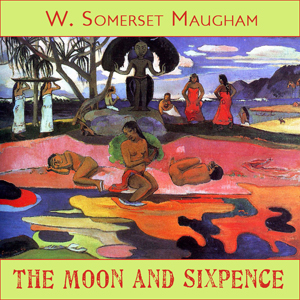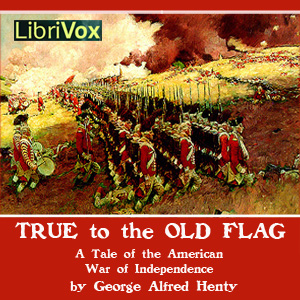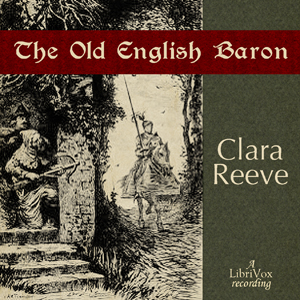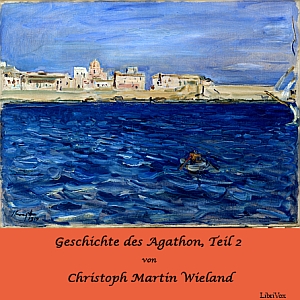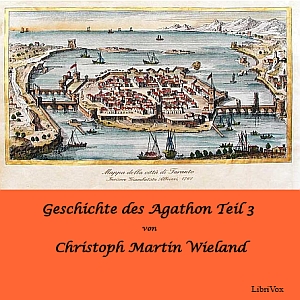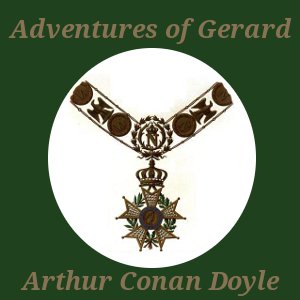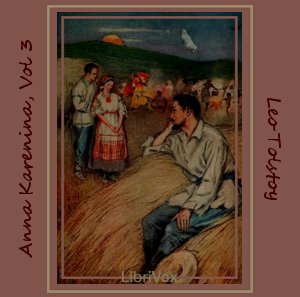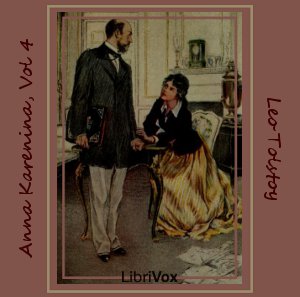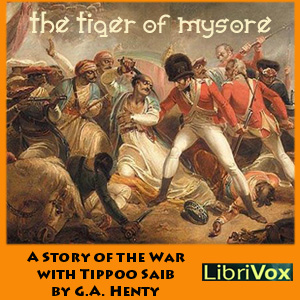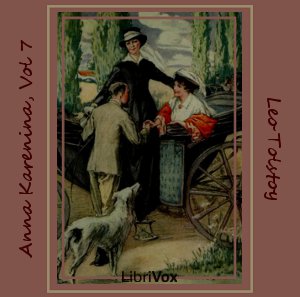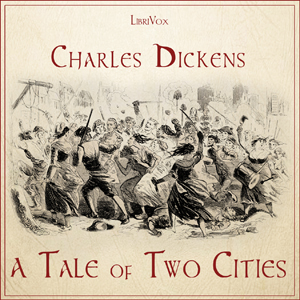Trafalgar, es el primero de los 46 Episodios Nacionales, escritos por Benito Pérez Galdós, que es considerado el mayor novelista español después de Cervantes. Galdós narra la intervención de Gabriel Araceli, al servicio de D. Alonso Gutiérrez de Cisniega, capitán de navío, en la batalla de Trafalgar a los catorce años de edad, el 21 de Octubre de 1805. Ante el promontorio de Trafalgar las naves inglesas, a las órdenes de Nelson, se enfrentaron a la flota franco-española en la legendaria batalla que supuso el comienzo del dominio inglés en los mares y la primera derrota de Napoleón. La novela describe la niñez de Gabriel, sus primeros amores, el embarco en la nave Santísima Trinidad y su participación en la cruenta batalla.
La Primera Serie
1 - Trafalgar
2 - La corte de Carlos IV
3 - El 19 de marzo y el 2 de mayo
4 - Bailén
5 - Napoleón en Chamartín
6 - Zaragoza
7 - Gerona
8 - Cádiz
9 - Juan Martín el Empecinado
10 - La batalla de los Arapiles
17 episodes
This Maugham novel is based on the life of the painter Paul Gauguin. The story is told by the narrator as he gradually comes to know the main character Charles Strickland, a middle aged stock broker. We follow Strickland from the point where he abruptly abandons his wife and children to become an artist, through his life in Paris and Marseille to Tahiti where he eventually dies of leprosy (Summary by Andy Minter)
21 episodes
The Lusiads (Os Lusíadas) is a Portuguese epic poem, written in the 16th century by Luis Vaz de Camões. The poem tells the tale of the Portuguese discoveries in the 15th and 16th centuries, specially the voyage to India by Vasco da Gama. Modelled after the classic epic tradition, Camões' Lusiads are considered not only the first literary text in Modern Portuguese, but also a national epic of the same level as Vergil's Aeneid. In the 19th century, Sir Richard Francis Burton translated Camões' Lusiads, in what he considered "the most pleasing literary labour of his life". (Summary by Leni)
12 episodes
This book tells the story of the American war of Independence from the side of the British. The old flag mentioned in the title is the flag of England. This is a book for young readers, but - as a good book should be - everybody can enjoy it". (Summary by Stav Nisser)
22 episodes
The story follows the adventures of Sir Philip Harclay, who returns to medieval England to find that the castle seat and estate of his friend Lord Lovel have been usurped. A series of revelations, horrors and betrayals climax in a scene of single combat in which good battles evil for the return of the prize. (Summary from Wikipedia)
13 episodes
An Elizabethan era historical novel by Scotland's master of fiction, Sir Walter Scott. With a cast of historical and created characters, including the Queen herself, Scott presents the sad history and tragic consequences of the secretive marriage of young Amy Robsart and the Earl of Leicester. (Summary by SK)
42 episodes
Barrili, in questo romanzo pubblicato nel 1905, prendendo spunto da un episodio narrato da Giorgio Vasari, ci narra la vicenda del pittore Spinello Spinelli (detto Spinello Aretino). Non spaventi né l'ambientazione trecentesca né l'aria da romanzo storico (essendo alcuni personaggi esistiti realmente, sebbene, poi, ciò che viene messo in scena sia in gran parte frutto della fantasia dell'autore) e non spaventino neppure i discorsi sull'arte messi in bocca ai personaggi o allo stesso narratore: l'intreccio è condotto brillantemente con ben dosati colpi di scena che danno slancio al romanzo, con uno stile agile, senza paludamenti. Il narratore poi, sebbene sia del tipo "onniscente", con il suo rivolgersi direttamente ai lettori diventa un personaggio egli stesso, quasi che fosse stato pensato proprio per una lettura ad alta voce. (Summary by Riccardo Fasol)
14 episodes
G.A. Henty’s “tale of ancient Egypt” tells the story of Amuba, prince of the Rebu, who is taken captive when his people are conquered by the Egyptians, and then becomes the servant and companion of Chebron, son of the high priest of Osiris. A mystery unfolds as the lads find evidence of a murderous conspiracy within the ranks of the priesthood; but they must then flee for their lives when they unintentionally kill the cat selected as the successor to the Cat of Bubastes, one of the most sacred animals of Egypt. Amuba and Chebron are strong, courageous, and resourceful – but will this be enough to carry them beyond the long reach of the power of Egypt? (Summary by D. Leeson)
20 episodes

Az Egri csillagok mára már igazi klasszikussá vált Magyarországon. A történet a 16. század első felében játszódik és körülbelül 25 évet foglal magába. A legfőbb történelmi események közt olvashatunk a magyar királyok székhelyének, Budának 1541-es vérmentes elfoglalásáról és a törökök 1552-es egri ostromáról. Betekintést nyerhetünk még más történelmi témákba is, például a reformáció Magyarországon elért hatására, a magyarok és a német-római császár közti nézeteltérésekre, és olyan értékek kísérik végig a regényt, mint a könyörületesség, apai és anyai szeretet, barátság, bizalom és őszinteség.The story is set in the first half of the 16th century and covers a period of roughly 25 years. The main historical events that are addressed are the bloodless occupation of Buda, the seat of the Hungarian kings, in 1541, and the 1552 Siege of Eger (now in Northern Hungary) by the Turks that forms the major topic of the novel. The story also addresses some other historical topics like the impact of the Reformation, the discord between Hungarians and the Holy Roman Emperor, as well as many themes of general import like mercy, filial and marital love, friendship, trust and truthfulness. The book is considered as the most famous Hungarian novel. It's been translated into English titled Eclipse of the Crescent Moon. (Summary by Wikipedia)
92 episodes

In the northern outreaches of the Canadian wilderness, it was understood that the Hudson Bay Company governed all trading, and one factor named Galen Albret took his position seriously. Free traders, or those who dared try to do their trading outside of the Company, found themselves having to face Galen Albret and his methods of dealing with them. One or two offenses he might tolerate, but for those who repeatedly refuse to acknowledge his warning out, he would send them on “La Longue Traverse” through the wilderness without supplies, and from which they seldom returned.Ned Trent was one such free trader who defied both the Company and Galen Albret. The defining difference between Ned and the other free traders however, was his youth, energy, and good looks, which the Factor’s daughter did not fail to recognize. What follows the initial confrontations between Ned, Galen Albret, and his daughter Virginia makes for a thrilling tale of adventure, daring, survival, and romance.Conjuror’s House was twice made into silent films titled “The Call of the North”, the first being Cecil B. DeMille’s first film in which he received solo directorial credit, and the second starring Noah Beery and Jack Holt (whose face was the basis for the face of Dick Tracy). (Summary by Roger Melin)
19 episodes
Illegitimacy, false identity, and bankruptcy are the major elements of Sir Walter Scott's 1816 novel, The Antiquary. Set in the period of the French Revolution, the novel's hero, Lovel, struggles to gain repute and the hand of his beloved despite his uncertain parentage. During these pursuits, he befriends the title's antiquary, Johnathan Oldbuck, who finds Lovel a captive audience to his scholarly studies and a tragic likeness to his own disappointments in love. Readers will discover whether Lovel's acts of bravery and courage ultimately earn him the birth and fortunes of a nobleman. (Summary by S. Kovalchik)
47 episodes
Verbesserte und erweiterte Ausgabe von 1794.
Wieland war – neben Lessing, Lichtenberg und Kant – der bedeutendste und reflexionsmächtigste Schriftsteller der Aufklärung im deutschen Sprachgebiet und der Älteste des klassischen Viergestirns von Weimar (Herder, Goethe, Schiller).
Die Geschichte des Agathon gilt als der erste große Bildungs- und Erziehungsroman in der deutschen Literatur und als Vorläufer des modernen psychologischen Romans.
(Zusammenfassung von Wikipedia)
29 episodes
Verbesserte und erweiterte Ausgabe von 1794.
Wieland war – neben Lessing, Lichtenberg und Kant – der bedeutendste und reflexionsmächtigste Schriftsteller der Aufklärung im deutschen Sprachgebiet und der Älteste des klassischen Viergestirns von Weimar (Herder, Goethe, Schiller).
Die Geschichte des Agathon gilt als der erste große Bildungs- und Erziehungsroman in der deutschen Literatur und als Vorläufer des modernen psychologischen Romans.
(Zusammenfassung von Wikipedia)
28 episodes
Writing at the end of the American Civil War, Verne weaves this story of a Scottish merchant who, in desperation at the interruption of the flow of Southern cotton due to the Union blockade, determines to build his own fast ship and run guns to the Confederates in exchange for the cotton piling up unsold on their wharves. His simple plan becomes complicated by two passengers who board his new ship under false pretenses in order to carry out a rescue mission, one which Capt. Playfair adopts as his own cause. This is going make the Rebels in Charleston rather unhappy with him.Sure, his new ship is fast - but can it escape the cannonballs of both North and South? (Summary by Mark Smith)
10 episodes
Verbesserte und erweiterte Ausgabe von 1794.
Wieland war – neben Lessing, Lichtenberg und Kant – der bedeutendste und reflexionsmächtigste Schriftsteller der Aufklärung im deutschen Sprachgebiet und der Älteste des klassischen Viergestirns von Weimar (Herder, Goethe, Schiller).
Die Geschichte des Agathon gilt als der erste große Bildungs- und Erziehungsroman in der deutschen Literatur und als Vorläufer des modernen psychologischen Romans.
(Zusammenfassung von Wikipedia)
37 episodes
Three Soldiers is a 1920 novel by the American writer and critic John Dos Passos. It is one of the key American war novels of the First World War, and remains a classic of the realist war novel genre. H.L. Mencken, then practicing primarily as an American literary critic, praised the book in the pages of the Smart Set. "Until Three Soldiers is forgotten and fancy achieves its inevitable victory over fact, no war story can be written in the United States without challenging comparison with it--and no story that is less meticulously true will stand up to it. At one blast it disposed of oceans of romance and blather. It changed the whole tone of American opinion about the war; it even changed the recollections of actual veterans of the war. They saw, no doubt, substantially what Dos Passos saw, but it took his bold realism to disentangle their recollections from the prevailing buncombe and sentimentality." (Summary from Wikipedia)
17 episodes
Ledscha, living in ancient Egypt, has lost her betrothed and all hope of love. But the gods see otherwise. She now loves a Greek sculptor, who only wanted her for a model, but even that will not happen. She has been replaced by another woman for the statue of Arachne. Who do the gods see her with? Is it the Greek, or someone else?
This work is the last written and published in German by Georg Ebers before he died in 1898. He wrote many novels set it ancient Egypt, which sparked the general interest in and popularity of Egyptology that still thrives today. This book was translated into English also in 1898. (Summary by Ann Boulais)
34 episodes
Waverley is set during the Jacobite Rebellion of 1745, which sought to restore the Stuart dynasty in the person of Charles Edward Stuart (or 'Bonnie Prince Charlie'). It relates the story of a young dreamer and English soldier, Edward Waverley, who was sent to Scotland in 1745. He journeys North from his aristocratic family home, Waverley-Honour, in the south of England first to the Scottish Lowlands and the home of family friend Baron Bradwardine, then into the Highlands and the heart of the 1745 Jacobite uprising and aftermath. (Summary by Wikipedia)
43 episodes
It is a fictional tale of cavalry actions during the U.S. Civil War, under General John Morgan. (Summary by M. Craun)
27 episodes
La Corte de Carlos IV es el segundo de la primera serie de los 46 Episodios Nacionales, escritos por Benito Pérez Galdós, que es considerado el mayor novelista español después de Cervantes. Galdós narra la continuación de las aventuras de Gabriel Araceli, al servicio, ahora, de una rica dama bien relacionada en la Corte del rey Carlos IV.
La Primera Serie
1 - Trafalgar
2 - La corte de Carlos IV
3 - El 19 de marzo y el 2 de mayo
4 - Bailén
5 - Napoleón en Chamartín
6 - Zaragoza
7 - Gerona
8 - Cádiz
9 - Juan Martín el Empecinado
10 - La batalla de los Arapiles
28 episodes
When Christopher Mason walked into Mr. Wicker's antique shop, he had no idea he would soon be embarking on a marvellous journey to China to find a wonderful tree made of jewels. He had no idea that Mr. Wicker was a magician and could travel through time. And that the tree was sought by others, not least among them the murderous Claggett Chew, a merchant in port and a pirate on the high seas, who also had knowledge of magic. But before Chris succeeded in quest, he would know of all these things and more. And of Mr. Wicker's friends, the sailor Ned Cilley, Becky Boozer, and the African boy Amos, changed from wood to flesh. And Christopher Mason would never be same, after. (Introduction by Arthur Piantadosi)
36 episodes
The hero, Etienne Gerard, is a Hussar in the French Army during the Napoleonic Wars. Gerard's most notable attribute is his vanity - he is utterly convinced that he is the bravest soldier, greatest swordsman, accomplished horseman and gallant lover in all France. Gerard is not entirely wrong since he displays notable bravery on many occasions, but his self-satisfaction undercuts this quite often. Obsessed with honour and glory, he is always ready with a stirring speech or a gallant remark to a lady. (Introduction from Wikipedia)
24 episodes
Robert Barr (1849 - 1912) was a Scottish Journalist, editor, humorist and author. A Prince of Good Fellows was published in 1902, and is a series of Historical Fiction stories about the young James V, King of Scots (1512 – 1542). The chapters are full of humor and adventure and portrays a young King who is both wise and adventurous. (Summary by Lars Rolander)
21 episodes
These are a collection of humorous "letters" written by a fictional character to a relation in the north during the Civil War. They were published regularly in the New York Mercury Sunday newspaper for the four years of the war. In the letters, Newell pokes fun at northern generals, politicians, and has hard things to say about southerners. Although Newell is rarely serious, I imagine the letters reflect the bitterness and frustration of many northerners at the time. (Introduction by Margaret)
52 episodes
These lesser known stories were penned by Conan Doyle during the period between killing off Sherlock Holmes in 1893 and reluctantly resurrecting him some ten years later. The swashbuckling, eponymous hero, Etienne Gerard, is one of Napoleon's gallant French Hussars, who considers himself the finest of them all. Through these "Boys Own Adventures", Conan Doyle pokes gentle fun at both the French and the English. This is the second volume containing eight adventures. (Summary by Phil)
25 episodes
When I first started reading this book, I thought it to be a historical romance novel. As I read further, I pondered whether it might be a sea-faring story. Reading still further, I determined it to be an adventure story. Alas, it is all three. To Have And To Hold, written by Mary Johnston was the bestselling novel of 1900. The story takes place in colonial Jamestown during the 1600
39 episodes
This is an early novel by the phenomenally successful author of frontier, western and sports stories. It deals with historical characters and incidents in the Ohio Valley in the late 18th century, especially with the foundation of Gnaddenhutten, a missionary village intended to bring Christianity to the Indians of Ohio, despite the violent opposition of both Indians and white renegades. This turbulent adventure romance features the heroics of a semi-legendary frontiersman, Lewis Wetzel, who attempts to protect the settlers from hostile Native Americans and the vicious white outlaws the Girty brothers. (Introduction by Leonard Wilson)
31 episodes
Anna Karenina tells of the doomed love affair between the sensuous and rebellious Anna and the dashing officer, Count Vronsky. Tragedy unfolds as Anna rejects her passionless marriage to follow her heart and must endure the hypocrisies of society. (Summary by Mary Anderson)
32 episodes
The Saga of Eric Brighteyes is the title of an epic viking novel by H. Rider Haggard, and concerns the adventures of its eponymous principal character in 10th century Iceland. Eric Thorgrimursson (nicknamed 'Brighteyes' for his most notable trait), strives to win the hand of his beloved, Gudruda the Fair. Her father Asmund, a priest of the old Norse gods, opposes the match, thinking Eric a man without prospects. But deadlier by far are the intrigues of Swanhild, Gudruda's half-sister and a sorceress who desires Eric for herself. She persuades the chieftain Ospakar Blacktooth to woo Gudrida, making the two men enemies. Battles, intrigues, and treachery follow. (Introduction by Wikipedia)
33 episodes

El 19 de Marzo y el 2 de Mayo es la tercera novela de la primera serie de los Episodios Nacionales de Benito Pérez Galdós. Continúa con la historia del joven gaditano Gabriel de Araceli, quien es también protagonista de los dos anteriores episodios, La Corte de Carlos IV y Trafalgar. La vida de Gabriel transcurre entre idas y venidas de la capital a Aranjuez, donde su novia Inés, huérfana, vive recogida por su tío, párroco de Aranjuez y protegido del Primer Ministro Manuel de Godoy, de quien dice ser paisano y amigo. Gabriel será testigo directo del Motín de Aranjuez del 19 de Marzo. Inés es recogida contra su voluntad en casa de dos parientes de su madre, los hermanos Requejo, quienes la mantienen encerrada. Requejo sabe que Inés es hija de una rica Condesa, y pretende casarse con ella para conseguir su fortuna. Gabriel consigue trabajo en casa de Requejo para estar cerca de Inés, prometiendo liberarla de su encierro. Utilizará su ingenio y sus dotes para la intriga, desarrolladas durante su estancia en la corte (episodio segundo, La Corte de Carlos IV) y tramará un plan para sacar a Inés de casa de Requejo, embaucando a Juan de Dios, otro empleado de Requejo también enamorado de Inés. (Extracto de Wikipedia)
La Primera Serie
1 - Trafalgar
2 - La corte de Carlos IV
3 - El 19 de marzo y el 2 de mayo
4 - Bailén
5 - Napoleón en Chamartín
6 - Zaragoza
7 - Gerona
8 - Cádiz
9 - Juan Martín el Empecinado
10 - La batalla de los Arapiles
30 episodes
The Army of Northern Virginia, still victorious after three hard years of fighting, capitalize on their victories at Fredericksburg and Chancellorsville, and a young Harry Kenton, is an eyewitness to the Confederate invasion of the north, culminating in the epic three-day struggle at Gettysburg, Pennsylvania, where Robert E. Lee puts into place a strategy that will end the war, or shatter his army. (Introduction by Robert Fletcher)
27 episodes
Anna Karenina tells of the doomed love affair between the sensuous and rebellious Anna and the dashing officer, Count Vronsky. In Book 4, Anna's husband considers drastic measures to address the flagrant infidelity of his wife, while Kitty and Levin meet once again in Moscow to their mutual discomfiture. (Summary by Mary Anderson and MaryAnn)
23 episodes
Anna Karenina tells of the doomed love affair between the sensuous and rebellious Anna and the dashing officer, Count Vronsky. Tragedy unfolds as Anna rejects her passionless marriage to follow her heart and must endure the hypocrisies of society. (Summary by Mary Anderson)
In Book 5 we see the new life begun by Levin and Kitty contrasted with that of Anna and Vronsky. The seeds of Anna's and Vronsky's discontent are sown.
33 episodes
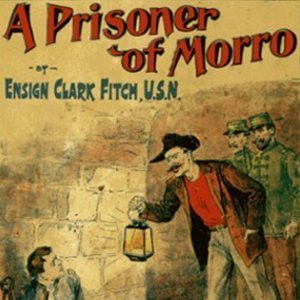
Upton Sinclair, born in 1878 was a Pulitzer Prize-winning American author. He wrote over 90 books in many genres. Best known for his muckraking novel, The Jungle, Sinclair also wrote adventure fiction. Many of these works were written under the pseudonym, Ensign Clark Fitch, U.S.N. A Prisoner of Morrow, published in 1898 when Sinclair was but 20 years old, is one of these efforts. The period for this work is the ten-week Spanish–American War which occurred in 1898. Revolts against Spanish rule had been prevalent for decades in Cuba and were closely watched by Americans. The main issue of the war was Cuban independence from Spain. The war was notable for a series of one-sided American naval and military victories and led to the downfall of Spain as a colonial power. Clif Faraday, a naval cadet, is the main character in this novel. Stationed on a gunboat off the Cuban island as part of the U. S. naval blockade, Clif survives a series of confrontations at sea and treacheries on land. He is captured while on the island during a mission and lands in a Cuban prison called Morro, renowned for its cruelty. Clif receives aid from an unlikely source when all seems lost and survives to show commendable leadership and canny judgment. If you are looking for social commentary from Sinclair, this is not the book. If you want an entertaining listen reminiscent of “old-time” radio weekly serials where the hero faces dire consequences at the end of the each week’s program, then you should enjoy this story. (Summary adapted from Wikipedia and modified by the Reader)
33 episodes
During the Indian war with Tippoo Saib, 15 year old Dick Holland and his mother set out from England to find and rescue his father, shipwrecked 6 years earlier, and believed to be held prisoner by the 'Tiger of Mysore'(summary by annise)
22 episodes
He was a painter, a poet, a novelist. He lived during the Hungarian revolution and his love of freedom meant his life was often in peril. She was his first love, this girl with the eyes like the sea. She was at heart noble, good and loving. What an excellent lady might have been made out of this woman, if she had only met with a husband who, in the most ordinary acceptance of the word, had been a good fellow, as is really the case with about nine men out of every ten. But she always managed to draw the unlucky tenth out of the urn of destiny. And so she spurned his true love in favor of a high-flying dandy. He went on to pursue a life of politics and she to follow her capricious heart. But yet, throughout her life, she kept returning to him and to the end, of all men, she loved him perhaps best of all. (Eyes Like the Sea won the Hungarian Academy of Sciences prize for literature in 1890.) (Summary by MaryAnn)
27 episodes
Named a "prophet of British imperialism" by the young George Orwell, and born in Bombay, India, Rudyard Kipling had perhaps the clearest contemporary eye of any who described the British Raj. According to critic Douglas Kerr: "He is still an author who can inspire passionate disagreement and his place in literary and cultural history is far from settled. But as the age of the European empires recedes, he is recognised as an incomparable, if controversial, interpreter of how empire was experienced. That, and an increasing recognition of his extraordinary narrative gifts, make him a force to be reckoned with." This force shines in THE PLAIN TALES FROM THE HILLS. -- MH . (Introduction by Mike Harris)
35 episodes
Anna Karenina tells of the doomed love affair between the sensuous and rebellious Anna and the dashing officer, Count Vronsky. Tragedy unfolds as Anna rejects her passionless marriage to follow her heart and must endure the hypocrisies of society. (Summary by Mary Anderson)
32 episodes
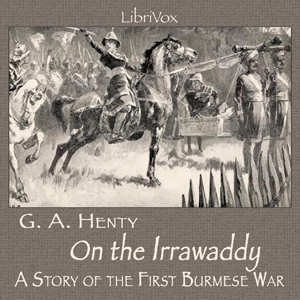
With the exception of the terrible retreat from Afghanistan, none of England's many little wars have been so fatal--in proportion to the number of those engaged--as our first expedition to Burma. It was undertaken without any due comprehension of the difficulties to be encountered, from the effects of climate and the deficiency of transport; the power, and still more the obstinacy and arrogance of the court of Ava were altogether underrated; and it was considered that our possession of her ports would assuredly bring the enemy, who had wantonly forced the struggle upon us, to submission. Events, however, proved the completeness of the error. The Burman policy of carrying off every boat on the river, laying waste the whole country, and driving away the inhabitants and the herds, maintained our army as prisoners in Rangoon through the first wet season; and caused the loss of half the white officers and men first sent there. The subsequent campaign was no less fatal and, although large reinforcements had been sent, fifty percent of the whole died; so that less than two thousand fighting men remained in the ranks, when the expedition arrived within a short distance of Ava. Not until the last Burmese army had been scattered did the court of Ava submit to the by no means onerous terms we imposed.
19 episodes
Anna Karenina tells of the doomed love affair between the sensuous and rebellious Anna and the dashing officer, Count Vronsky. In Book 8, Vronsky leaves for the Servian war, unable to live without Anna and hoping to die. Back at his farm with a loving wife and baby son, Levin struggles with thoughts of death and the horror of living when he does not understand "the whence, and why, and how, and what [life] was." (Summary by Mary Anderson and MaryAnn)
19 episodes
A tale of Victorian-style romance, maritime battles and even the penultimate Napoleonic battle - Waterloo. (Introduction by Mike Harris)
20 episodes
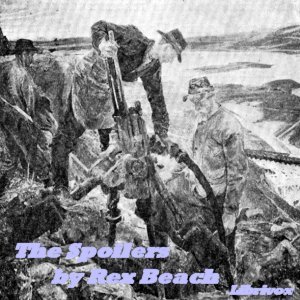
Rex Beach was born in Atwood, Michigan to a prominent family and pursued a career as a lawyer before being drawn to Alaska at the time of the Klondike Gold Rush. After five years of unsuccessful prospecting, he turned to writing. His first novel, The Spoilers, was based on a true story of corrupt government officials stealing gold mines from prospectors, which Beach witnessed while he was prospecting in Nome, Alaska. The novel begins with the return of Dextry and Roy Glenister to Nome to reclaim their mine, The Midas. On their arrival, they find “The Law” has come to Nome. The problem is “The Law” is crooked, bent on stealing all the best gold mines in Alaska. Alec McNamara is the villain in this novel and rules with a heavy hand through the aging and corrupt Judge Stillman. Helen Chester is the naïve niece of Judge Stillman. She cannot believe her uncle is involved in such treachery. And of course, Roy Glenister is in love with her. After trying to work within the law, the miners eventually form a vigilante group called The Stranglers to right the wrongs while Glenister continues to believe the law can correct the wrongs. A cast of other characters enter the book with various roles; Cherry Malotte, The Bronco Kid (who has a surprise in store for listeners), Slapjack Sims, Struve the crooked lawyer. The climax of the book is…………but then I would be spoiling the ending, wouldn’t I? The Spoilers became one of the bestselling novels of 1906. The novel was made into movies five times, with leading men including Gary Cooper, Randolph Scott and John Wayne.For a brief pictorial history of the characters involved in the actual mine stealing, please see this page.(Summary from Wikipedia and modified by The Reader)
22 episodes
Anna Karenina tells of the doomed love affair between the sensuous and rebellious Anna and the dashing officer, Count Vronsky. In Book 7, Levin, in town for Kitty’s confinement, finds himself drawn to the corruptive influence of Moscow society. Stiva again presses Karenin to divorce Anna, while Anna, driven by jealousy, becomes increasingly irrational towards Vronsky. (Summary by Mary Anderson and MaryAnn)
31 episodes
C'est un roman historique, social et philosophique dans lequel on retrouve les idéaux du romantisme et ceux de Victor Hugo concernant la nature humaine. L'auteur lui-même accorde une grande importance à ce roman et écrit en mars 1862, à son éditeur Lacroix : « Ma conviction est que ce livre sera un des principaux sommets, sinon le principal, de mon œuvre ».Dans ce tome, Marius, devenu étudiant, rencontre Cosette et son père, M. Leblanc. Nous ferons la connaissance des membres de l'ABC et retrouverons quelques anciennes connaissances, les Thénardier et Javert. (résumé de Wikipedia, modifié par Nadine)
77 episodes
The House with the Green Shutters is a novel by the Scottish writer George Douglas Brown, first published in 1901 by John MacQueen. Set in mid-19th century Ayrshire, in the fictitious town of Barbie which is based on his native Ochiltree, it consciously violates the conventions of the sentimental kailyard school, and is sometimes quoted as an influence on the Scottish Renaissance.
The novel describes the struggles of a proud and taciturn carrier, John Gourlay, against the spiteful comments and petty machinations of the envious and idle villagers of Barbie (the "bodies"). (Introduction by Wikipedia)
*additional PL by Linette Geisel
27 episodes
A Tale of Two Cities (1859) is a novel by Charles Dickens, set in London and Paris before and during the French Revolution. With well over 200 million copies sold, it is among the most famous works of fiction.
The novel depicts the plight of the French peasantry demoralized by the French aristocracy in the years leading up to the revolution, the corresponding brutality demonstrated by the revolutionaries toward the former aristocrats in the early years of the revolution, and many unflattering social parallels with life in London during the same time period. It follows the lives of several protagonists through these events. The most notable are Charles Darnay and Sydney Carton. Darnay is a French once-aristocrat who falls victim to the indiscriminate wrath of the revolution despite his virtuous nature, and Carton is a dissipated British barrister who endeavours to redeem his ill-spent life out of his unrequited love for Darnay's wife, Lucie Manette. (Introduction by Wikipedia)
45 episodes
"Zaragoza" es la sexta novela de la primera serie de los Episodios Nacionales de Benito Pérez Galdós. En "Napoleón en Chamartín" dejamos a Gabriel de Araceli preso en manos de los franceses, después de haber fracasado en su intento de liberar a su amada Inés de sus parientes. La columna de presos, maniatados, se dirige hacia Francia, pero... (Resumen de Tux)
La Primera Serie
1 - Trafalgar
2 - La corte de Carlos IV
3 - El 19 de marzo y el 2 de mayo
4 - Bailén
5 - Napoleón en Chamartín
6 - Zaragoza
7 - Gerona
8 - Cádiz
9 - Juan Martín el Empecinado
10 - La batalla de los Arapiles
32 episodes

My series of stories dealing with the wars of England would be altogether incomplete did it not include the period when the Romans were the masters of the country. The valour with which the natives of this island defended themselves was acknowledged by the Roman historians, and it was only the superior discipline of the invaders that enabled them finally to triumph over the bravery and the superior physical strength of the Britons. The Roman conquest for the time was undoubtedly of immense advantage to the people -- who had previously wasted their energies in perpetual tribal wars -- as it introduced among them the civilization of Rome. In the end, however, it proved disastrous to the islanders, who lost all their military virtues. Having been defended from the savages of the north by the soldiers of Rome, the Britons were, when the legions were recalled, unable to offer any effectual resistance to the Saxons, who, coming under the guise of friendship, speedily became their masters, imposing a yoke infinitely more burdensome than that of Rome, and erasing almost every sign of the civilization that had been engrafted upon them. How far the British population disappeared under the subsequent invasion and the still more oppressive yoke of the Danes is uncertain; but as the invaders would naturally desire to retain the people to cultivate the land for them, it is probable that the great mass of the Britons were not exterminated. It is at any rate pleasant to believe that with the Saxon, Danish, and Norman blood in our veins, there is still a large admixture of that of the warriors who fought so bravely against Caesar, and who rose under Boadicea in a desperate effort to shake off the oppressive rule of Rome.. (Introduction by G.A.Henty)
22 episodes

Like many soldiers at the beginning of their military careers, Harry Penrose has romantic ideas of climbing the ranks and attaining hero status. However, while stationed at Gallipoli, the realities of war begin to take their toll on Penrose, not only physically, but also mentally where the war has become a 'battle of the mind.' This is his story as related by a fellow soldier, as well as the story of the campaign at Gallipoli which is vividly portrayed from the author's own personal experiences.During his tenure as an officer, Penrose slowly asserts himself; the war takes a toll on his personality, but he begins to live up to his early dreams of heroism. However, his creeping self-doubt grows by degrees; following Gallipoli, he is reassigned from his post as scouting officer once on the Somme, knowing he cannot face another night patrol, and earns the wrath of his commanding officer - an irascible Regular colonel - over a trivial incident. The colonel piles difficult, risky work on him - remarking to the narrator that "Master Penrose can go on with [leading ration parties] until he learns to do them properly" - and Penrose submits, working doggedly to try and keep from cracking. After a long period of this treatment, by the winter of 1916, Penrose's spirit is worn down. What follows his downward spiral may surprise and even shock today's readers, but was common and controversial at the time. (Introduction adapted from Wikipedia with contributions from the narrator and the proof listener.)
13 episodes

"Gerona" es la séptima novela de la primera serie de los Episodios Nacionales de Benito Pérez Galdós. Continúa con el relato novelado de la Guerra de Independencia entre España y Francia. En esta ocasión, se narra el asedio de las tropas francesas a la ciudad de Gerona a lo largo de la segunda mitad del año 1809. El protagonismo no recae sobre Gabriel de Araceli (protagonista del resto de novelas de la primera serie), sino que es Andrés Marijuán, un personaje secundario de anteriores entregas, quien relata a Gabriel, a través de unas memorias escritas durante el sitio, en primera persona, sus vivencias durante el sitio de Gerona. Sólo un año después de la victoria de 1808, el contraataque implacable de los napoleónicos ha provocado el desastre en un ejército español mal pertrechado y peor organizado. Una a una, diferentes plazas han ido cayendo: Zaragoza, Ocaña, Talavera de la Reina... La resistencia española, replegada en Andalucía, se desangra por la falta de medios y las luchas intestinas entre la Junta Central y las resucitadas Cortes de Castilla. En ese ambiente de desesperanza, Gabriel, incorporado al ejército del Centro, llega al Puerto de Santa María. Allí se reencuentra con Andresillo Marijuán, a quien conocimos en Bailén (cuarto episodio de la primera serie), que le relata en primera persona el sitio de Gerona, donde ha servido a las órdenes de Álvarez de Castro. Andrés toma bajo su tutela a la familia de un herrero recientemente fallecido, compuesta por cuatro hermanos: Siseta, a quién promete hacer su mujer al término de la guerra, Manolet, Gasparó y Badoret. Son vecinos del doctor Nomdedeu, un buen hombre cuya hija, Josefina, agoniza por una extraña enfermedad nerviosa. Pronto comienza el asedio de las tropas francesas... (Resumen de Wikipedia)
La Primera Serie
1 - Trafalgar
2 - La corte de Carlos IV
3 - El 19 de marzo y el 2 de mayo
4 - Bailén
5 - Napoleón en Chamartín
6 - Zaragoza
7 - Gerona
8 - Cádiz
9 - Juan Martín el Empecinado
10 - La batalla de los Arapiles
27 episodes

